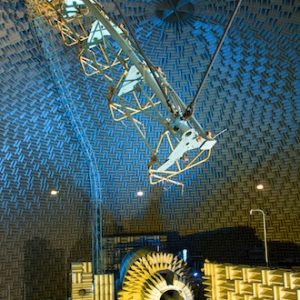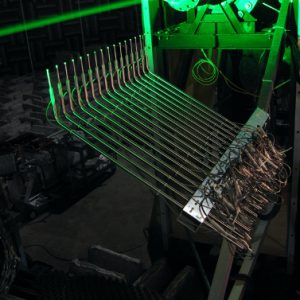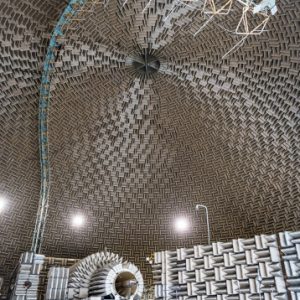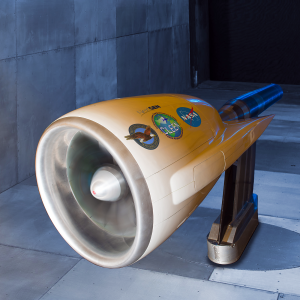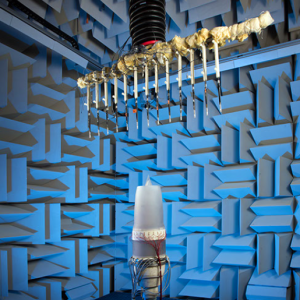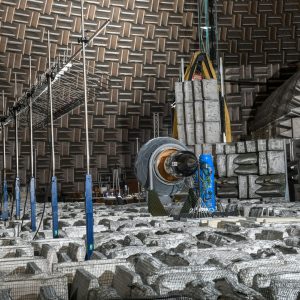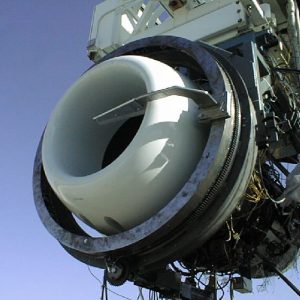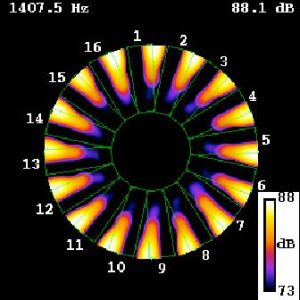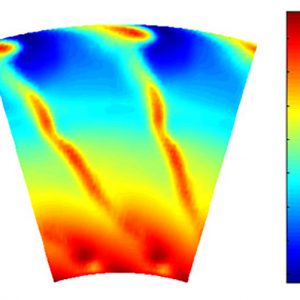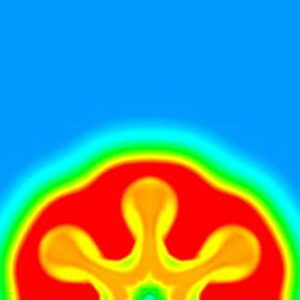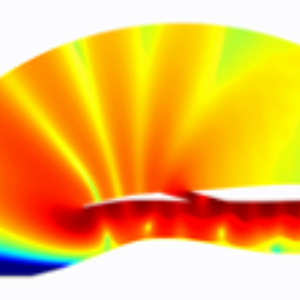Acoustics Research
Our vision is to help increase the peace and quiet in the world by serving as a leader in aircraft engine noise reduction research
Our Mission
Air travel is safer, cleaner, and quieter because of the aircraft engine acoustic research we perform at NASA Glenn Research Center (GRC). We conduct experiments to characterize and reduce aviation noise pollution in world-class facilities such as the Aero-Acoustic Propulsion Laboratory, the 9-ft by 15-ft Low Speed Wind Tunnel, and the Acoustical Testing Laboratory. The information gained from these experiments helps us to develop quieter and more efficient aircraft engines.
At NASA GRC, we are asked not only to imagine the quiet air transportation system of the future, but to help bring the best ideas into service for the benefit of all. We study the acoustic and aerodynamic performance of propulsion systems for a wide range of aircraft including small autonomous advanced air mobility vehicles, general aviation, commercial aircraft, and experimental supersonic vehicles. We study gas turbine engines and promising electric, hybrid/electric aircraft propulsion systems. Our investigations include small scale engine component experiments to full-size flight tests. To measure airflow and sound, we use special instrumentation like particle image velocimetry, hot wire anemometry, Raman spectroscopy, and microphones in phased arrays or continuously rotating rakes. The global aviation noise reduction community relies on data from NASA GRC experiments to validate theory and noise prediction software.
Cities need vibrant airports to enable local economy to thrive, to join the global community, and to draw the world to their doorstep. As airport traffic increases, cities are faced with the choice of balancing the health and quality of life of residents with the prosperity of their regional economy.
Quiet aircraft have a competitive advantage in today’s market. Rather than finding ways to live with the noise, we’re conducting the research needed to understand the underlying physics that enables engineers to develop quieter airplanes.
We invite you to learn more about our history of innovation and contributions to fundamental aeronautics research:
NASA Glenn’s Contributions to Aircraft Engine Noise Research
The “Apollo” of Aeronautics: NASA’s Aircraft Energy Efficiency Program, 1973-1987
Quieting the Skies

We perform experimental and analytical research to reduce community noise caused by subsonic, supersonic, and advanced air mobility vehicles. Capabilities are maintained to develop and apply diagnostic tools for acoustics, as well as aerodynamics, to predict noise and analyze propulsion systems. Research is performed in small facilities, such as our Acoustical Testing Lab, as well as larger world-class test facilities including the Aero-Acoustic Propulsion Lab and the 9-foot by 15-foot Low Speed Wind Tunnel (LSWT).
Technical Focus Areas: Subsonic Aircraft, Supersonic Aircraft, Advanced Air Mobility (AAM), and Electrified/Hybrid Aircraft Propulsion.
Cities need vibrant airports to enable local businesses to thrive, to join the global marketplace, and to draw the world to their doorstep. As airport traffic increases, cities are faced with difficult choices, the health, and quality of life of residents living near airports against the greater good of their region’s economy.
Aircraft noise is a barrier to emerging aviation markets.
Rather than finding ways to live with the noise, we’re conducting the research needed to understand the underlying physics that enables engineers to develop quieter airplanes.
Learn more about our history of innovation and contributions to fundamental aeronautics research:
NASA Glenn’s Contributions to Aircraft Engine Noise Research
The “Apollo” of Aeronautics, NASA’s Aircraft Energy Efficiency Program 1973-1987
Experimental Research
Measurement Technologies
Noise Prediction Software Tools
Resources
Contact Us
NASA Glenn Acoustics is dedicated to solving some of the toughest problems the nation faces in acoustics research. Contact us for more information.

